Classical CDs Round-Up 11
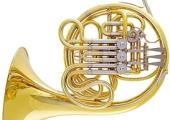

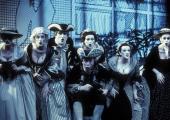
Thirty-five years on and this is still as much David Hockney’s Rake as it is Stravinsky’s or W H Auden’s. How rarely it is that what we see chimes so completely and utterly with what we hear. The limited palette of colours, the precisely etched cross-hatching, the directness and the cunningly conceived elements of parody – am I talking about Hockney or Stravinsky? Two great individualists in complete harmony. So why the disconnection?
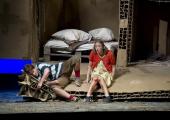
Glyndebourne’s Hänsel und Gretel comes in a large cardboard box, with plain brown wrapper, duct-tape and a barcode. There’s a public health warning, too: sugar and spice and all things nice come at a price. The evil witch Rosina Sweet-Tooth is nothing more, nothing less than rabid consumerism masquerading as a smart lady in a pink two-piece suit. Yes, Laurent Pelly’s 2008 staging was/ is the first environmentally aware Humperdinck. It had to come. For revival read recycle.
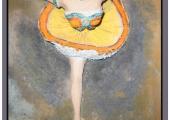
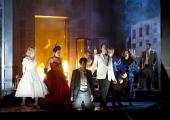
It seems somehow wrong to come away from a Don Giovanni feeling a bit noncommittal about the whole thing. It’s the sort of opera that should raise you from your seat – that should fire and inspire – but this performance, directed by Jonathan Kent, never truly got off the ground. The set – a sort of Rubik's Cube of a building designed by Paul Brown that opened in ever more ingenious ways, and morphed from chapel to party house to graveyard – was clever and satisfying and mirrored the steady disintegration of the characters as we progressed.
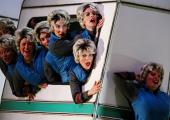
Shakespeare's Macbeth is full of fleetingly funny moments. Halfway through the regicidal Second Act, we stumble upon a castle porter gibbering on about the bodily consequences of drink - "nose-painting, sleep and urine". Verdi's opera mostly shuns these vignettes for the bigger, more concentratedly darker picture. The music works itself up into an ornamented mania and for the most part broods on low orchestral colourings. There is nothing funny about a single second of it.

We love Gareth Malone, don’t we? We are big fans of the Pied Piper of primetime. And so we should be. The youth of today seem impressively eager to down tools, put away childish things like knives and drugs and safe-cracking equipment, and follow this slightly weedy and totally uncool choirmaster out onto the concert platform. Our glorious new coalition should be using him to tackle crime.
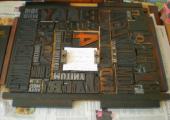
When Billy Budd, too-innocent hero of Britten's opera by way of Melville's trouble-at-sea novella, bids farewell to the Rights o'Man, his superior officers prick up their ears at the implications of mutiny. It's a ship he hymns, but the connection is first and foremost with Thomas Paine's revolutionary tract.
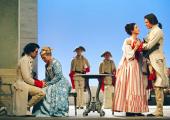
Cosi fan tutte’s arc of human experience is peculiarly effective when heard at Glyndebourne. With the mid-way picnic and wine in the setting sun, how much more aware are you of how easy it is as a day goes by to take leave of one’s senses and behave in a very silly way with serious consequences. Most seriously, to discover things about oneself that one did not want to know.

Silence. Near-darkness. Oozy weeds of orchestral strings twist in the mind of Edward Fairfax Vere (John Mark Ainsley), remembering the tragic events of 1797 when he was Captain of the HMS Indomitable. From that awe-inspiring start through to one of the most upsetting of onstage murders, perhaps the greatest parade of major and minor chords in all opera and beyond to some kind of redemption, Michael Grandage's Glyndebourne production - his first in the operatic sphere - of Britten's grandest opera moves with a simplicity and grace which fit this tight little craft of an opera house very well indeed. It's the singing and the orchestra in perfect balance which packs the punches, rather than any one idea in the staging, but that's not necessarily any defect.